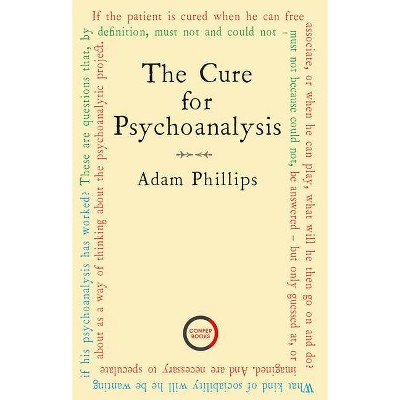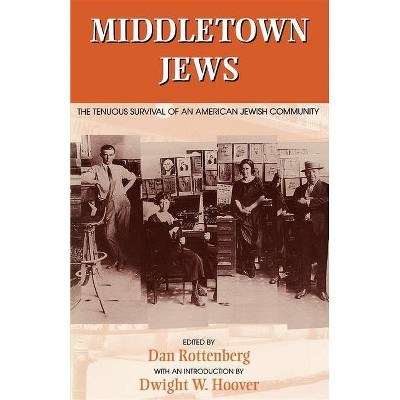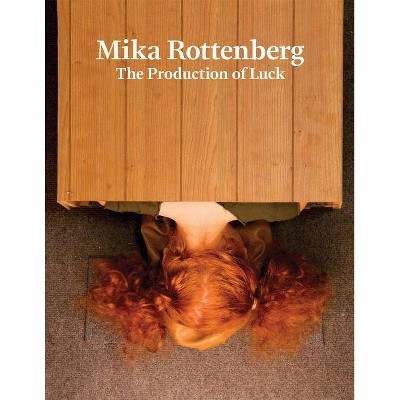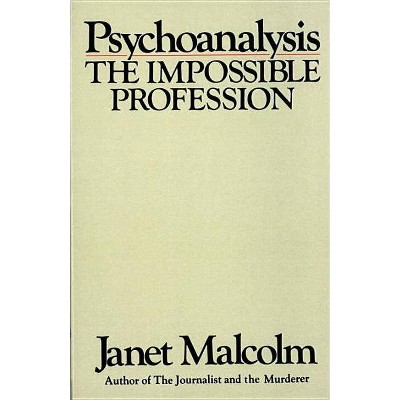For the Love of Psychoanalysis - by Elizabeth Rottenberg (Paperback)
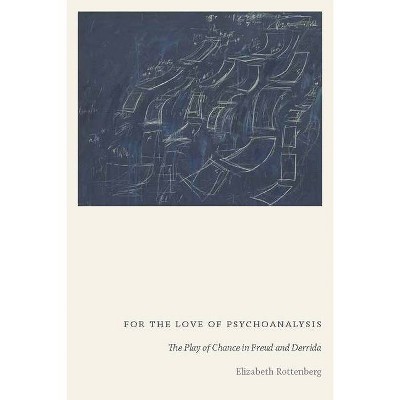
Similar Products
Products of same category from the store
AllProduct info
<p/><br></br><p><b> About the Book </b></p></br></br>This book is about what exceeds or resists calculation--in life and in death. Its two parts and nine chapters highlight, in their coupling of Freud and Derrida ("Freuderrida"), the accidents both in and of psychoanalytic writing, and the philosophical question of what limits the openness of our horizon.<p/><br></br><p><b> Book Synopsis </b></p></br></br><p><i>For the Love of Psychoanalysis </i>is a book about what exceeds or resists calculation--in life and in death. Rottenberg examines what emerges from the difference between psychoanalysis and philosophy. <p/>Part I, "<i>Freud</i>errida," announces a non-traditional Freud: a Freud associated not with sexuality, repression, unconsciousness, and symbolization, but with accidents and chance. Looking at accidents both in and of Freud's writing, Rottenberg elaborates the unexpected insights that both produce and disrupt our received ideas of psychoanalytic theory. Whether this disruption is figured as a foreign body, as traumatic temporality, as spatial unlocatability, or as the death drive, it points to something that is neither simply inside nor simply outside the psyche, neither psychically nor materially determined. <p/>Whereas the close reading of Freud leaves us open to the accidents of psychoanalytic writing, Part II, "Freu<i>derrida</i>," addresses itself to what transports us back and limits the openness of our horizon. Here the example par excellence is the death penalty and the cruelty of its calculating decision. If "Freu<i>derrida</i>" insists on the death penalty, if it returns to it compulsively, it is not only because its calculating drive is inseparable from the history of reason as philosophical reason; it is also because the death penalty provides us with one of the most spectacular and spectacularly obscene expressions of Freud's death drive. <p/>Written with rigor, elegance, and wit, this book will be essential reading for anyone interested in Freud, Derrida, and the many critical debates to which their thought gives rise.</p><p/><br></br><p><b> From the Back Cover </b></p></br></br><p>"This brilliant, pathbreaking, witty, and lucidly argued book will undoubtedly become a major point of reference--if not <i>the</i> major point of reference--for anyone interested in psychoanalysis and deconstruction for years to come"--Elissa Marder, Emory University <p/>"A tour de force of critical writing. Rottenberg has a unique, lively, and witty philosophical voice. She stands out as one of the most important scholars working at the intersection of deconstruction and psychoanalysis"--Rebecca Comay, University of Toronto <p/><i>For the Love of Psychoanalysis </i>is a book about what exceeds or resists calculation--in life and in death. Rottenberg examines what emerges from the difference between psychoanalysis and philosophy. <p/>Part I, "<i>Freud</i>errida," announces a non-traditional Freud: a Freud associated not with sexuality, repression, unconsciousness, and symbolization, but with accidents and chance. Looking at accidents both in and of Freud's writing, Rottenberg elaborates the unexpected insights that both produce and disrupt our received ideas of psychoanalytic theory. Whether this disruption is figured as a foreign body, as traumatic temporality, as spatial unlocatability, or as the death drive, it points to something that is neither simply inside nor simply outside the psyche, neither psychically nor materially determined. <p/>Whereas the close reading of Freud leaves us open to the accidents of psychoanalytic writing, Part II, "Freu<i>derrida</i>," addresses itself to what transports us back and limits the openness of our horizon. Here the example par excellence is the death penalty and the cruelty of its calculating decision. If "Freu<i>derrida</i>" insists on the death penalty, if it returns to it compulsively, it is not only because its calculating drive is inseparable from the history of reason as philosophical reason; it is also because the death penalty provides us with one of the most spectacular and spectacularly obscene expressions of Freud's death drive. <p/><b>Elizabeth Rottenberg</b> is Professor of Philosophy at DePaul University and a practicing psychoanalyst in Chicago. She is the author of <i>Inheriting the Future: Legacies of Kant, Freud, and Flaubert</i> and the editor and translator of many books by Maurice Blanchot, Jacques Derrida, and Jean-François Lyotard.</p><p/><br></br><p><b> Review Quotes </b></p></br></br><br>This is the kind of book that will repay multiple readings because new facets of its multilayered argumentation appear with each rereading. Students of literature, philosophy, and psychoanalysis will find rich models in this text for approaching the intersection of philosophical speculation and the art of analysis. Highly recommended.-- "Choice"<br><br>A tour de force of critical writing. Rottenberg has a unique, lively, and witty philosophical voice. She stands out as one of the most interesting scholars working at the intersection of deconstruction and psychoanalysis.<b>---Rebecca Comay, University of Toronto, <i></i></b><br><br>This brilliant, pathbreaking, witty, and lucidly argued book will undoubtedly become a major point of reference--if not <i>the</i> major point of reference--for anyone interested in psychoanalysis and deconstruction for years to come.<b>---Elissa Marder, Emory University, <i></i></b><br><p/><br></br><p><b> About the Author </b></p></br></br><p><b>Elizabeth Rottenberg</b> is Professor of Philosophy at DePaul University and a practicing psychoanalyst in Chicago. She is the author of <i>Inheriting the Future: Legacies of Kant, Freud, and Flaubert</i> (Stanford) and the editor and translator of many books by Maurice Blanchot, Jacques Derrida, and Jean-François Lyotard.</p>
Price History
Price Archive shows prices from various stores, lets you see history and find the cheapest. There is no actual sale on the website. For all support, inquiry and suggestion messages communication@pricearchive.us
